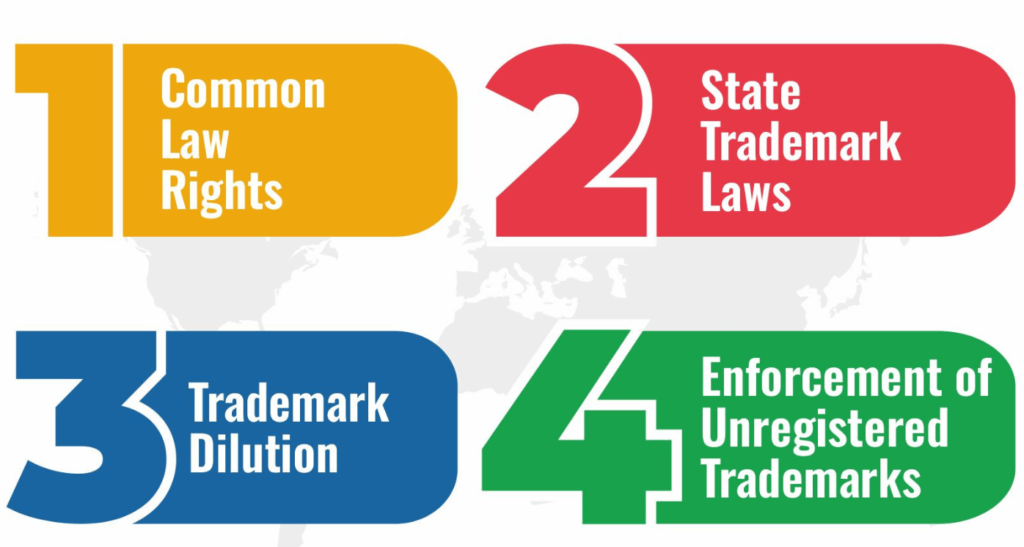
Close


Trademarks are an essential component of the intellectual property landscape, providing businesses with the ability to protect their brand names, logos, and other distinctive marks from unauthorized use. While many people are familiar with registered trademarks, which offer strong legal protection, unregistered trademarks also hold significant value under both federal and state laws.
In this article, we will explore the concept of unregistered trademarks and their legal standing in the United States.
An unregistered trademark, also known as a common law trademark, is a mark used in commerce to identify the source of goods or services without having been officially registered with the United States Patent and Trademark Office (USPTO) or a state’s trademark office. The primary distinction between registered and unregistered trademarks lies in the level of protection they offer.

While unregistered trademarks offer valuable protection, they come with certain limitations:
A trademark is a valuable asset for any business, offering a wide range of benefits that can positively impact brand recognition, legal protection, and market competitiveness. Registering a trademark provides several advantages, which are outlined below:

Unregistered trademarks, or common law trademarks, hold an important place in the intellectual property landscape. While not as robust as their registered counterparts, they provide immediate protection and can serve as a stepping stone towards federal registration. Understanding the legal protections available for unregistered trademarks at both the federal and state levels is crucial for businesses and individuals seeking to safeguard their brand identity. Whether you choose to rely on an unregistered or registered trademark, securing and protecting your distinctive marks is an essential step in establishing and maintaining your brand’s reputation and success.
Please Subscribe our news letter and get update.
© Copyright 2023 – Wissen Research All Rights Reserved.
Powered by VintageCoders